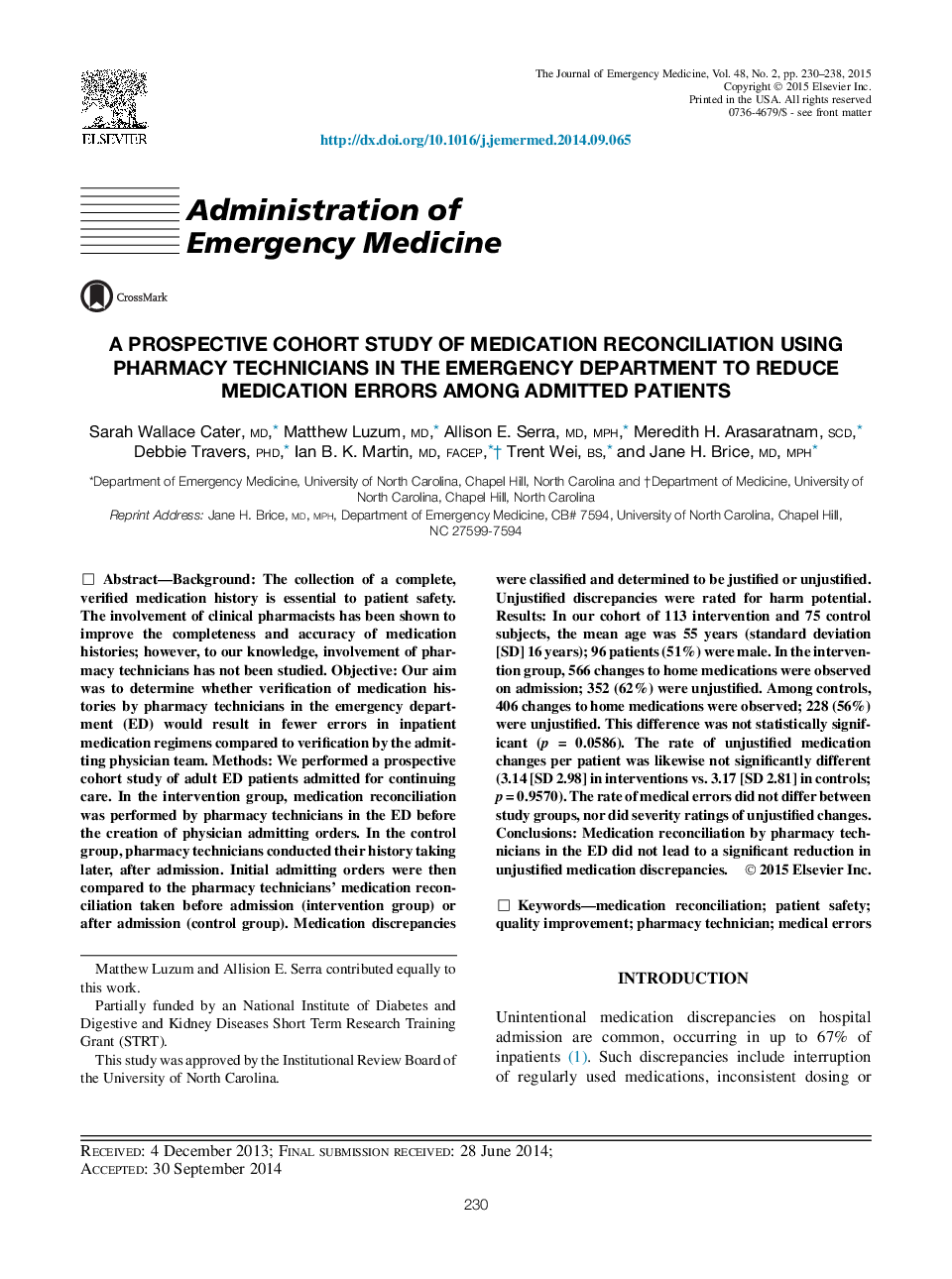| کد مقاله | کد نشریه | سال انتشار | مقاله انگلیسی | نسخه تمام متن |
|---|---|---|---|---|
| 3246955 | 1589128 | 2015 | 9 صفحه PDF | دانلود رایگان |
BackgroundThe collection of a complete, verified medication history is essential to patient safety. The involvement of clinical pharmacists has been shown to improve the completeness and accuracy of medication histories; however, to our knowledge, involvement of pharmacy technicians has not been studied.ObjectiveOur aim was to determine whether verification of medication histories by pharmacy technicians in the emergency department (ED) would result in fewer errors in inpatient medication regimens compared to verification by the admitting physician team.MethodsWe performed a prospective cohort study of adult ED patients admitted for continuing care. In the intervention group, medication reconciliation was performed by pharmacy technicians in the ED before the creation of physician admitting orders. In the control group, pharmacy technicians conducted their history taking later, after admission. Initial admitting orders were then compared to the pharmacy technicians' medication reconciliation taken before admission (intervention group) or after admission (control group). Medication discrepancies were classified and determined to be justified or unjustified. Unjustified discrepancies were rated for harm potential.ResultsIn our cohort of 113 intervention and 75 control subjects, the mean age was 55 years (standard deviation [SD] 16 years); 96 patients (51%) were male. In the intervention group, 566 changes to home medications were observed on admission; 352 (62%) were unjustified. Among controls, 406 changes to home medications were observed; 228 (56%) were unjustified. This difference was not statistically significant (p = 0.0586). The rate of unjustified medication changes per patient was likewise not significantly different (3.14 [SD 2.98] in interventions vs. 3.17 [SD 2.81] in controls; p = 0.9570). The rate of medical errors did not differ between study groups, nor did severity ratings of unjustified changes.ConclusionsMedication reconciliation by pharmacy technicians in the ED did not lead to a significant reduction in unjustified medication discrepancies.
Journal: The Journal of Emergency Medicine - Volume 48, Issue 2, February 2015, Pages 230–238
